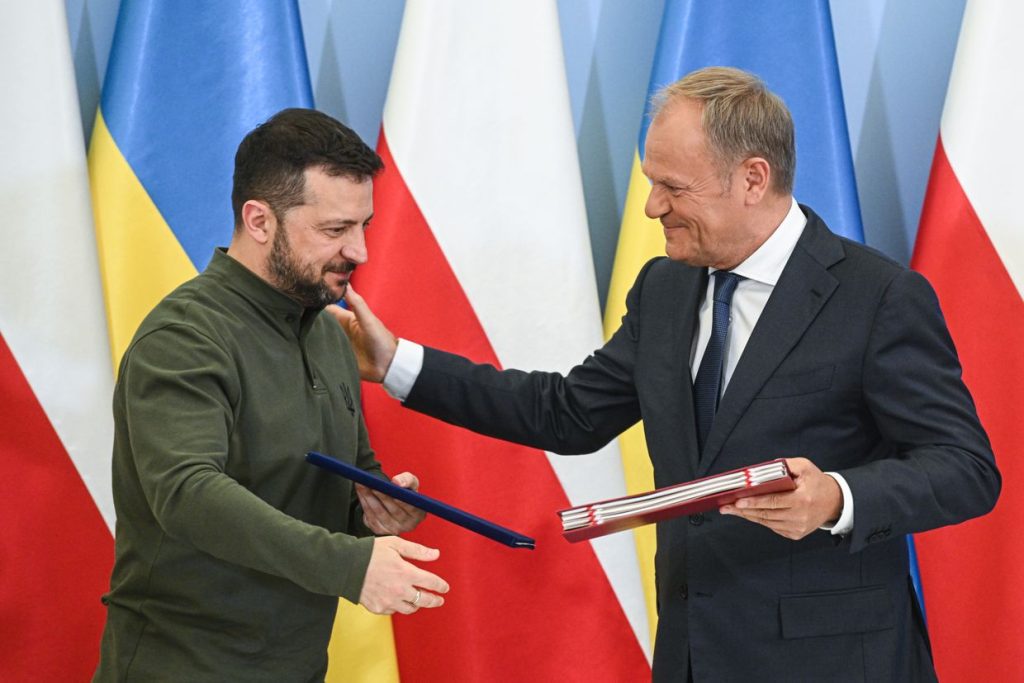Polish President Andrzej Duda has outlined key priorities for Poland’s EU presidency in early 2025, with a focus on the European integration of Ukraine and maintaining an “open door to Europe” policy for new members. During a summit of the Arraiolos Group in Krakow, leaders from parliamentary and semi-presidential EU member states discussed the importance of supporting Ukraine amidst Russian aggression and working towards its accession to the EU. The discussions also emphasized strengthening EU-U.S. ties, rebuilding Ukraine post-war, and ensuring energy security within the EU. Estonia’s president and other leaders echoed the call for supporting Ukraine and expanding the EU to include Ukraine, Moldova, and the Western Balkans.
In June 2022, the European bloc granted candidate status to Ukraine and Moldova, and in December of the same year, EU leaders agreed to open accession talks with the two aspiring members. Poland is set to chair the EU Council from January to June 2025, taking over the presidency from Hungary. However, Hungarian Prime Minister Viktor Orban and his top diplomat, Peter Szijjarto, have faced criticism for obstructing assistance for Ukraine and sanctions against Russia. Orban’s approach has led to him being labeled as a “black sheep” within the EU, with concerns raised about domestic rule of law issues and democratic backsliding.
NATO is set to rethink its alliance’s relationship with Russia for the first time in decades, with a senior U.S. official noting the need to craft a new strategy around the allies’ specific positions. Defense ministers from NATO member nations will convene in Brussels in October to discuss the matter. The discussions come against the backdrop of heightened tensions between Russia and the West, with ongoing conflicts in Ukraine and concerns about Russian aggression. The reevaluation of NATO’s relationship with Russia reflects the evolving geopolitical landscape and the need for a unified and strategic approach among alliance members.
As Poland prepares to take on the EU presidency and push for the European integration of Ukraine, there is a growing emphasis on the need to support Ukraine in the face of Russian aggression. The EU’s decision to grant candidate status to Ukraine and Moldova, as well as open accession talks with these countries, signals a commitment to expanding the bloc and fostering closer ties with Eastern European nations. The challenges posed by Hungary’s obstructionist stance highlight the internal divisions within the EU and the need for unity in addressing security threats and promoting democratic values across the continent.
The upcoming NATO discussions on rethinking the alliance’s relationship with Russia underscore the complex geopolitical dynamics at play in Europe and beyond. As the U.S. and its allies navigate shifting global alliances and security challenges, there is a recognition of the need to reassess strategic approaches and policies towards Russia. The outcome of the NATO meetings will shape the alliance’s stance towards Russia and reaffirm its commitment to collective defense and security cooperation. Overall, these developments highlight the ongoing efforts to address security threats, promote democratic values, and strengthen alliances in an increasingly complex and unpredictable global environment.















